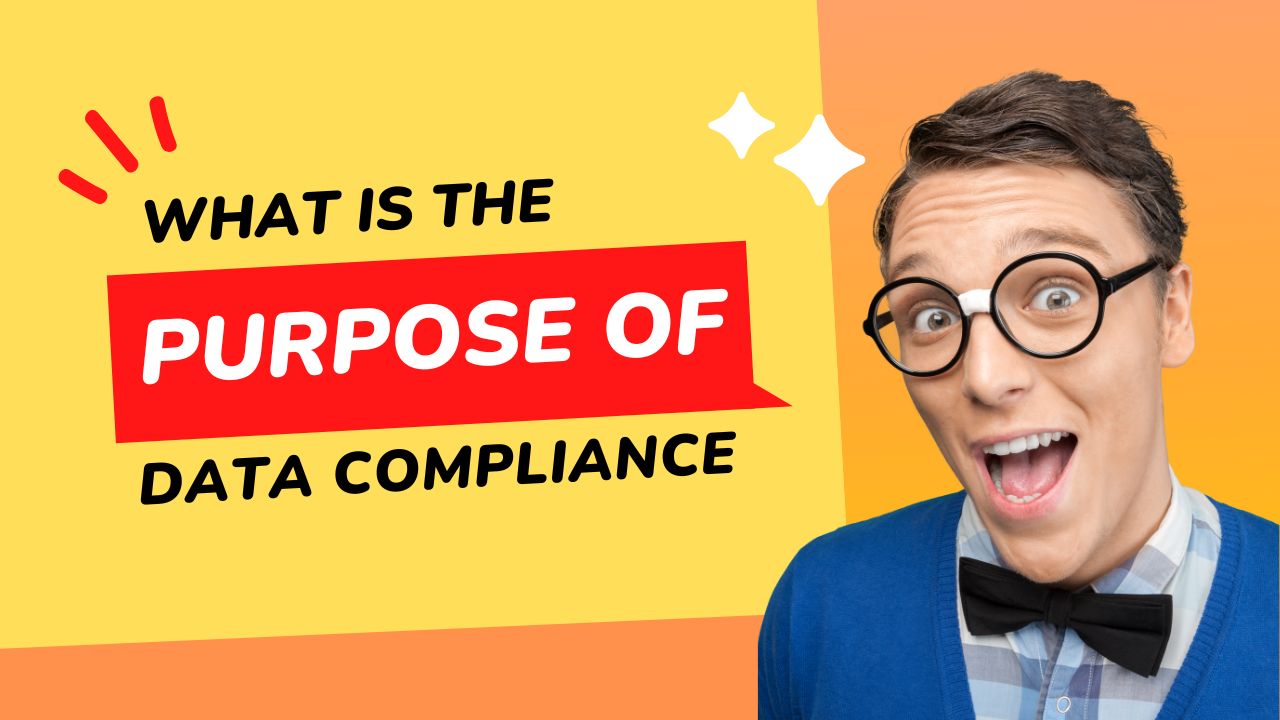In today’s article, I am going to tell you about What Is the Purpose of Data Compliance, so if you want to know about it, then keep reading this article. Because I am going to give you complete information about it, so let’s start.
Data compliance is the adherence to regulations and laws that dictate how data must be collected, processed, and stored. Organizations that collect and use data must ensure that they comply with data protection laws and regulations. Data compliance is critical for organizations to protect their customers, employees, and shareholders. Keep reading to learn what is data compliance.

So let’s get complete information about What Is the Purpose of Data Compliance without wasting any time, come on.
Table of Contents
What Is the Purpose of Data Compliance:
The purpose of data compliance is to ensure that all data collected and processed by an organization is done in a way that protects the privacy of individuals and complies with applicable regulations. Organizations are responsible for ensuring that all data collected is necessary for the purpose for which it is being used, that the data is securely stored and properly protected, and that individuals can access and correct their data if needed.
Organizations can help protect against data breaches, regulatory fines, and other negative consequences by ensuring that data is collected and processed in a compliant manner.
Data compliance is essential for customers’ privacy for businesses and organizations that handle Personally Identifiable Information (PII), such as names, social security numbers, or credit card information. PII is sensitive information that can be used to commit identity theft or other financial crimes, so businesses must take steps to protect it. Data compliance measures can include secure data storage, employee training on data security best practices, and encrypting information when sending it over the internet.
In addition to protecting customer data, businesses must also protect their confidential business information. This can include trade secrets, business plans, and other sensitive information that could provide a competitive advantage if released to the public. Data compliance measures can help keep this information safe and secure, ensuring that the business does not suffer any damage if it falls into the wrong hands.
What are the laws and regulations for data compliance?
Organizations that process, store or transmit personal data must comply with various data compliance regulations. Compliance with data compliance regulations can be costly and time-consuming but is necessary for organizations that want to protect their customers’ privacy.
There are several different regulations and laws that dictate data compliance. Some of the most common include the General Data Protection Regulation (GDPR), the Health Insurance Portability and Accountability Act (HIPAA), and the Payment Card Industry Data Security Standard (PCI DSS).
Organizations that deal with sensitive data must take extra precautions to protect that information. Each of these regulations has specific data collection, processing, and storage requirements.
These regulations require organizations to encrypt personal data and establish protocols for handling sensitive information. Therefore, organizations need to understand the requirements of the relevant rules and implement appropriate controls to ensure compliance. Implementing a pci dss compliance program is vital for organizations that process, store, or transmit personal data, ensuring that sensitive information is handled with the utmost care.
These regulations are in place to protect the privacy of individuals and ensure that data is used for authorized purposes only. Data compliance also helps organizations maintain trust with their customers and partners.
By following data compliance guidelines, companies can ensure that their customers’ data is safe and secure. Companies that collect, process, or store personal data must comply with all applicable regulations. Failing to comply with data regulations can result in penalties and hefty fines, in some cases, companies may even be shut down.
How can you protect your company’s data?
Data compliance can include anything from customer data to financial information. There are several ways that you can protect your company’s data, including:
- Using strong passwords and encryption technologies
- Restricting access to sensitive data only to those who need it
- Regularly backing up your data
- Ensuring that your antivirus software is up-to-date
- Educating employees on how to protect themselves online
Maintain data security to comply with data regulations.
Maintaining data security is essential for any business. Still, it’s critical for organizations that handle sensitive data to ensure that their organization is taking the necessary steps to protect your data. They can ensure that their data is appropriately protected against unauthorized access, use, or disclosure. They should also have a plan for data backup and recovery in case of a disaster and ensure that employees are properly trained in data security best practices. This includes implementing security measures and developing policies and procedures for safeguarding data. If you have a data breach, you need to have a plan to respond to it. You should notify the appropriate authorities and your customers as soon as possible.
Compliance with data security regulations is essential for protecting your business and your customers. Data compliance helps protect businesses and individuals from data breaches. Data breaches can be costly and can damage your reputation. You can help protect your business and customers by complying with data security regulations.
And to get complete information about what is GDPR (General Data Protection Regulation), you can watch the video above.
Read more:)
- 15+ Best Inventory Management Software: A-to-Z Guide for Beginners!
- What is Brand Loyalty & How to Secure it For Your Online Store?
- How to Make Branding Strategy more Effective: A-to-Z Guide!
So hope that you have liked this article What Is the Purpose of Data Compliance. And if you still have any questions and suggestions related to this, then you can tell us in the comment box below. And thank you very much for reading this article.